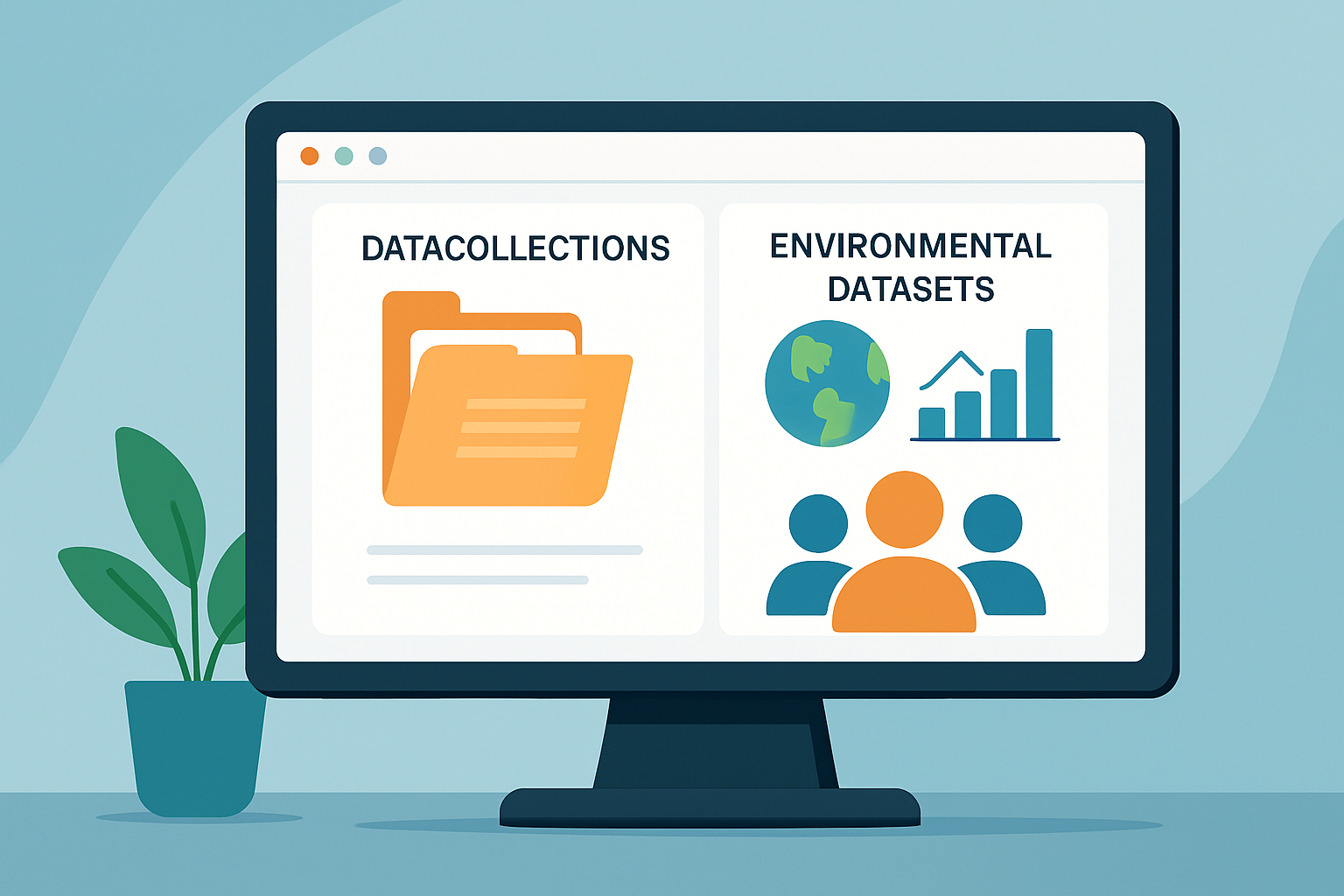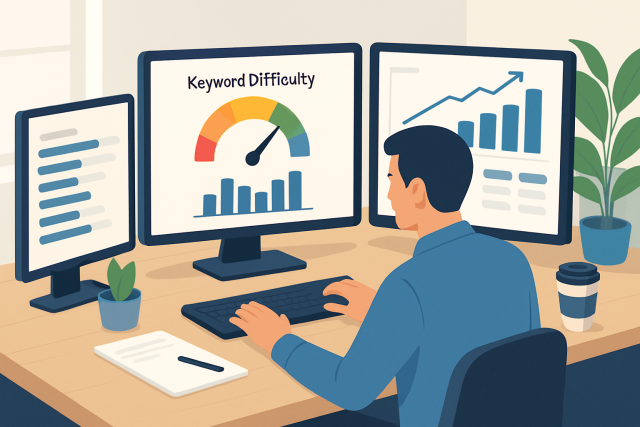
Choosing the best Ahrefs alternative that fits your needs
Explore top Ahrefs alternatives like Moz and Mangools to find affordable, user-friendly SEO tools ta...

The Internet Archive has long been a trailblazer in preserving a vast array of digital content—from websites and books to videos and software. Plenty of users look for an internet archive alternative because they need specific features or have budget constraints or quirky archival demands.
The Internet Archive offers a wide-ranging and thoughtfully curated collection though I’ve noticed some users tend to seek out alternatives that might suit their unique needs more snugly. Maybe they’re after lower costs or a more straightforward interface. Others want beefed-up metadata handling, finer-grained access controls or support for niche file types and data formats that the Internet Archive doesn’t always put front and center.
Finding the right alternative platform really begins with knowing which features align best with your archival goals. Usually the key players to keep an eye on are storage capacity and established archival standards. Also consider how smoothly it manages metadata and indexing and the options it offers for sharing and controlling access to preserved materials.
Digital preservation comes with several solid platforms that serve as noteworthy alternatives to the Internet Archive. These options each bring their own flavor and vary in focus, cost, ease of use and technical features.
Let’s kick things off with Archive-It, a real gem if you’re looking to capture and preserve web content. It’s a service that’s been around the block, letting you save snapshots of websites so nothing disappears into the digital abyss. Whether you’re a researcher or just someone who’s seen too many favorite pages vanish, this tool’s got your back.
Archive-It is a subscription web archiving service from the Internet Archive. It gives organizations the power to build and manage collections of web content while allowing them to tweak crawling and archiving settings to fit their unique needs.
Archive-It primarily targets libraries, archives and research institutions making their lives a little easier with a intuitive interface. Users can handpick specific URLs or entire domains to capture which is a neat way to stay focused. Thanks to its selective crawlers and customizable metadata options you can build collections that really hit the mark, maintain thorough web archives and ensure long-term access—no fuss.
Perma.cc is a trusty go-to tool for academics, legal experts and researchers who want to lock down permanent links to web pages so their sources don’t disappear over time. It works by snapping up snapshots of web pages the moment they’re cited. This helps dodge annoying broken links and keeps the original context intact.
This platform shines a light on the importance of verifiable court citations and scholarly references, acting as an indispensable tool for legal and academic pros alike. Perma.cc is refreshingly user-friendly and places a strong emphasis on preserving permanent records.
The Memento Project is a pretty unique initiative that opens the door to accessing archived web content through the lens of time, collecting historical snapshots from a variety of web archives scattered across the globe. It lets users dive into different versions of a web page exactly as they showed up at various points in the past.
Unlike your typical standalone repository Memento acts as a meta-aggregator, making it a breeze to access archived snapshots without the hassle of hosting the content yourself.
If you’ve never stumbled across Zenodo before, it’s a bit of a hidden gem in the world of open research. Think of it as that friendly neighborhood repository that’s more than happy to store and share all sorts of research outputs—papers, datasets, you name it. It’s backed by CERN and the European Commission, so you’re in good company, and it’s designed with simplicity in mind. Honestly, uploading your work is as straightforward as pie, and once it’s there, you get a DOI to make citing a breeze. In my experience, Zenodo strikes a nice balance between accessibility and reliability, making it a go-to spot for researchers eager to share their findings without the fuss.
Zenodo is a pretty well-regarded open-access repository built by CERN that’s designed to help preserve research data across all sorts of scientific fields. It hands out DOIs (Digital Object Identifiers) for datasets and publications, making it a reliable go-to for anyone wanting to tick the boxes on data sharing and citation standards in academic circles.
Zenodo mainly zeroes in on archiving academic datasets, publications and software. It strikes a neat balance between careful preservation and user-friendly public access while keeping an eye on citation tracking.
Sometimes, data needs a safe haven—a cozy spot where it’s protected from the chaos of the outside world. This is where a Data Refuge comes into play, offering a reliable sanctuary for your precious information. Think of it as your data’s own little hideout, tucked away but always ready for action when you need it.
Data Refuge is a grassroots movement dedicated to safeguarding fragile federal environmental data that’s at risk of disappearing or being pulled offline. It strives to preserve vital scientific datasets that monitor everything from climate shifts to weather patterns and ecological details—info that’s absolutely essential for research and for crafting informed policies.
Teaming up with citizens, scientists and institutions, Data Refuge creates local repositories and gently nudges everyone to take an active role in safeguarding data from slipping through the cracks.

User interface of a digital platform representing environmental data preservation and collaborative archiving efforts
Each alternative platform brings its own unique mix of perks and trade-offs. Depending on what floats your boat—whether it’s the cost, the technical features, how much control you want over metadata or the variety of data—you might stumble upon a preservation solution that suits your needs better than the Internet Archive.
| Platform | Cost | Content Type Supported | Access Features | User Base | Ideal Use Case |
|---|---|---|---|---|---|
| Internet Archive | Free (donation-supported) | Web pages, books, videos, software, audio | Open access, with the option for bulk downloading if you’re really thirsty for data | General public, researchers | A go-to spot for all kinds of digital preservation, practical and versatile |
| Archive-It | Subscription | Web content | Controlled selective access, so you get to pick what you want to see | Libraries, institutions | Perfect for when you need to zero in on specific web archives |
| Perma.cc | Freemium | Web pages | Permanent links paired with handy citation tools | Academics, legal professionals | Spot-on for locking down those legal and academic citations that deserve to stick |
| Memento Project | Free | Aggregated web archives | Browse through different points in time like a digital time traveler | Researchers, historians | Great for anyone wanting to dig up historical versions of web pages, a real blast from the past |
| Zenodo | Free | Research data, publications | DOI assignment, and you can choose public or private settings | Academics, scientists | Keeps academic datasets safe and sound, like a digital vault you can trust |
| Data Refuge | Volunteer-based | Federal environmental data | Collaborative access backed by local repositories | Scientists, citizen scientists | A vital lifeline for protecting fragile environmental data before it’s gone for good |
Picking the right data preservation platform means understanding the features you need and keeping an eye on the latest market trends and user preferences. Tools like Semrush, Moz and Mangools come in handy here. They offer valuable insights into popular search terms, competition and user intent—kind of like having a backstage pass to the industry's inner workings.
Clearly map out your long-term preservation goals and identify exactly which types of data you truly need to archive. There is no need to hoard everything under the sun.
Consider which content types and metadata matter most for your unique situation since not all data serves the same purpose.
Take a close look at your budget and compare it with the subscription or usage options available. Surprise costs can quickly derail a good plan.
Explore the platform's usability and be sure to test their customer support. Smooth sailing during adoption will save you a lot of headaches later on.
Always keep scalability and reliability in mind, making sure the platform can grow with your needs and keep your data accessible well into the future.
Choosing an alternative to internet archive with a clear and thoughtful plan in place really sets you up for success, ensuring your investment ticks all the boxes for both today’s demands and tomorrow’s surprises.
The Internet Archive still holds its ground as a major player in digital archiving, but exploring an internet archive alternative can reveal perks like upgraded features or simpler ways to keep costs in check.

Explore top Ahrefs alternatives like Moz and Mangools to find affordable, user-friendly SEO tools ta...

Find the best search engine for images with our expert-ranked guide detailing features, speed, and i...

Unlock faster SEO wins by targeting low competition keywords. This guide walks you through actionabl...

Unlock the power of video content with top video search engines tailored for keyword research. Disco...